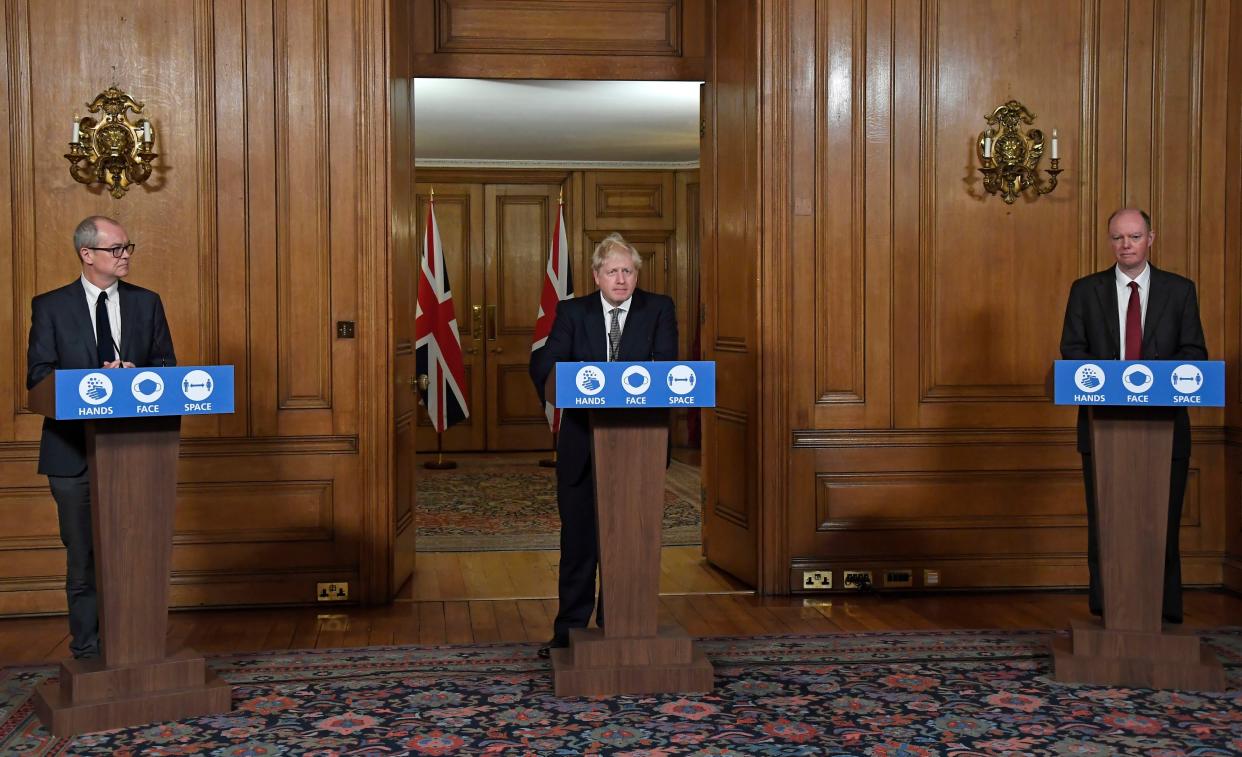Second lockdown: Government ‘must make it count’, scientists warn

PRI170833205.jpg
(PA)The government “must make it count” as England prepares to head into a second nationwide lockdown after tiered local restrictions failed to curb the growing rate of transmission, scientists have warned.
Health experts have described the new measures, which will be voted on by MPs next week and are expected to last for one month, as a “painful” but “logical” step in controlling the spread of coronavirus.
All pubs, restaurants and non-essential shops will be closed from Thursday, with household mixing and international travel set to be banned. Schools and universities will remain open and outdoor exercise allowed.
Prime minister Boris Johnson confirmed the lockdown on Saturday night, after initially ignoring recommendations made by the Scientific Advisory Group for Emergencies (Sage) to introduce a two-week “circuit-breaker”.
Ministers were warned in September that the country faced a “very large epidemic with catastrophic consequences” unless they took immediate action – yet such advice was waved away, with the prime minister denouncing a second lockdown as the “height of absurdity”.
The government’s latest U-turn has been welcomed by members of Sage and the scientific community, but many have insisted that the delay has come at a cost.
“Yet again, the UK has been slow to act, delaying decisive action until the last moment,” said Dr Stephen Griffin, an associate professor at Leeds University’s School of Medicine.
“Much like a forest fire, the longer things burn, the harder they are to extinguish, and the more damage ensues from both the fire and the water.
“Ironically, by delaying, the harm done to industries and society will be far worse compared to had the advice of Sage been followed in September.”
Recent analysis presented by the government’s Scientific Pandemic Influenza Group on Modelling finally persuaded Mr Johnson and his team to enforce a second lockdown.
Without further action, several thousand deaths would be recorded on a daily basis throughout the winter period, culminating in a “peak of mortality” worse than the first wave, the prime minister told a press conference on Saturday.
He added the NHS was at risk of being overrun – a “medical and moral disaster, beyond the raw loss of life”.
“The sheer weight of Covid demand would mean depriving tens of thousands, if not hundreds of thousands, if not millions of non-Covid patients of the care they need,” he added. “The risk is, for the first time in our lives, the NHS will not be there for us.”
On the basis of such an outcome, Professor Sir Robert Lechler, president of the Academy of Medical Sciences, said “we have no other choice than to move back into a national lockdown”.
“All of the evidence points towards this being the only step we can take together to prevent the high number of deaths predicted,” he said.
“It will not be a complete fix, but it is a crucial way for us to regain control, regroup and develop further interventions.”
Sage analysis had shown that more than 85,000 people could die during the second wave in a “reasonable worst case scenario”. But Sage figures later showed that the infection numbers in mid-October were far above those used to predict that figure.
Professor Sir Jeremy Farrar, director of the Wellcome Trust, said the consequences of sticking with the current “insufficient” restrictions would be “much worse” than going for a second lockdown.
“The sooner we act, the sooner we can start to recover,” he said. “It will be a very difficult few weeks now and no one can underestimate the toll that will take on people.
“But the consequences of sticking with the current insufficient restrictions would have been much worse.”
Sir Jeremy warned the government and country must “use this time well”.
“The test, trace and isolate system remains critically important and needs all our support,” he said.
“We need enhanced capacity in the NHS, to protect vulnerable people, particularly healthcare workers and those in care homes, and continue to push on urgently to develop safe and effective treatments and vaccines.”
Dr Griffin said England’s test and trace programme, once lauded as “world-beating” by the prime minister, remains a “dysfunctional and ineffective body, with a price tag that beggars belief”.
The latest data shows that just over 60 per cent of close contacts of Covid-positive people were successfully reached by the system in the week up to 21 October. Separately, the results of fewer than one in four tests — 22.6 per cent — taken in person at a testing site in the UK were received within 24 hours.
“It is difficult to know how long it might take to reverse the growth of the new wave of infection, Christmas is obviously a huge consideration for many,” Dr Griffin added.
“However, regardless of how long it takes, I hope that this time around is indeed the last time. I hope that the time bought by locking down is used properly, and the UK can finally emulate countries where the epidemic is controlled and life is as near to normal as we can only dream of.
“Above all, make it count this time.”
Dr Julian Tang, a professor in respiratory sciences at the University of Leicester, said the lockdown was “logical” but warned that the four-week timeframe may not be enough – “unless everyone complies as comprehensively as possible with the restrictions.”
Read more
Did fears for NHS and widespread deaths push Johnson to act?
Pubs, restaurants and shops to close in new four-week lockdown

 Yahoo News
Yahoo News 
